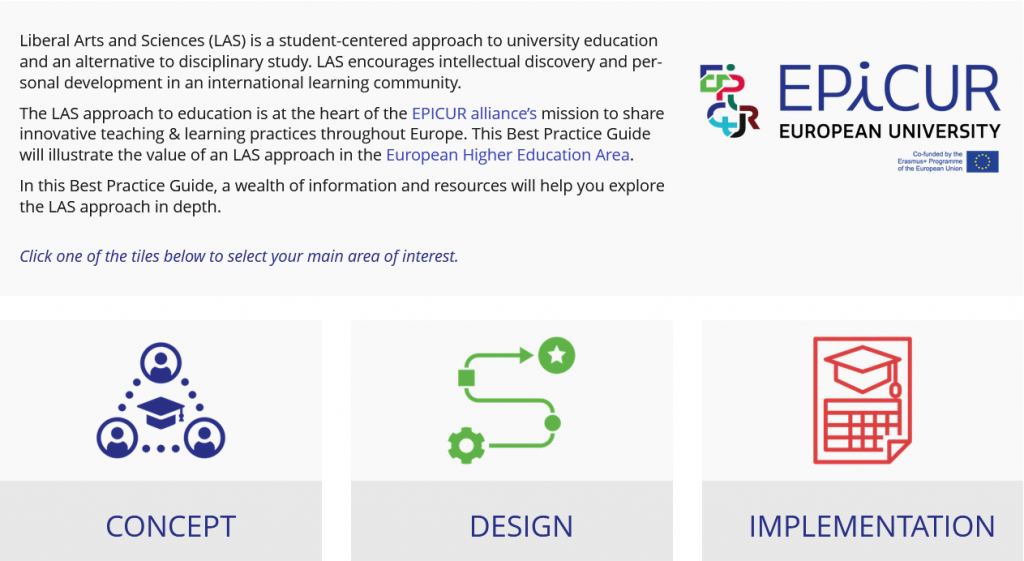The EPI-WIKI Best Practice Guide for implementing LAS at your European Higher Education Institutions is now live! Explore it!
The Best Practice Guide (BPG) provides guidance about LAS education in a concept, design, and implementation framework, offering insights ranging from the design of LAS courses, components and curricula to the integration of LAS components in existing study programmes all the way to advice for establishing LAS programmes at a university.

The EPICUR LAS Best Practice Guide will serve as a living resource to share lessons learned, challenges encountered, and advocated approaches for the following target groups:
- Students who want to co-design their study programmes and are interested in ideas on how to structurally include LAS components into their curricula
- Study programme coordinators who are interested in integrating LAS components into their offered curricula
- University members who are interested in starting a LAS programme at their institution
- European Alliance members who are interested in how LAS education can be included in their objectives and processes
- Instructors who want to include LAS-inspired didactics in their teaching or inspire others with their teaching approaches and
- Everyone else interested in LAS education
Liberal Arts & Sciences (LAS) is a student-centered approach to university education and an alternative to disciplinary study. LAS encourages intellectual discovery and personal development in an international learning community. The LAS approach to education is at the heart of the EPICUR Alliance mission to share innovative teaching & learning practices throughout Europe.








